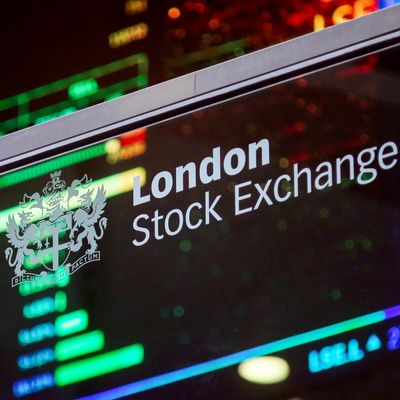
London investors crawled out of bed Friday morning to find that, hours earlier, the pound had fallen 6 percent in two minutes as the sun rose over Singapore.
As of this writing, the British currency had recovered half that drop, down only 3 percent against the dollar. At its nadir Friday morning, the pound traded at $1.1841, its lowest value since 1985, according to Bloomberg.
It’s unclear precisely what triggered the crash. The most benign possibility is simple human error — some trader entering the wrong number, then setting off a cascade of sell-offs by anxious algorithms. Since few traders were awake and active at the time, there were few sentient humans around to put the brakes on an automation-driven downward spiral.
Another possibility is that some robo-news junkie saw reports that French president François Hollande had demanded “tough Brexit negotiations” and got spooked.
“These days some algos trade on the back of news sites, and even what is trending on social media sites such as Twitter, so a deluge of negative Brexit headlines could have led to an algo taking that as a major sell signal for the pound,” Kathleen Brooks, research director at City Index, told the BBC. “Once the pound started moving lower then more technical algos could have followed suit, compounding the short, sharp, selling pressure.”
But the crash came hours after Hollande’s comments were published, leading some to suspect deliberate action taken by a human investor.
“A sudden move in a very quiet time not linked to any information is highly unlikely to be due to any algorithm,” Lyle Pakula, chief investment officer of Melbourne-based hedge fund AE Capital, told The Wall Street Journal. “In my opinion, the source of the run is likely due to a discretionary trader trying to push the market.”
Regardless, an uncertainty has hung over the currency since the United Kingdom voted to leave the European Union in June — and, more proximately, since last Sunday, when U.K. prime minister Theresa May vowed to trigger Article 50, the clause that initiates exit negotiations from the EU, by the end of March 2017. May also suggested that gaining control over her nation’s borders was more important than retaining full access to the EU market.
“I think we’ve underestimated how many people had money positions for a very wishy-washy Brexit, or even none,” Sean Callow, senior currency strategist at Australian bank Westpac, told the BBC.
The pound is now 16 percent lower than it was when Britons went to the polls on June 23.






























